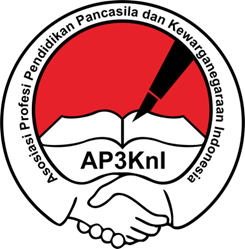The Role of Statistics in Elections Through Quick Count
DOI: https://doi.org/10.26618/jed.v7i4.8814
Statistics, Election, Quick Count, Institution, Survey
Abstract
The problem in this research is the existence of public opinion about the election results based on the results of surveys and quick counts conducted by survey institutions. It is often the case that the results of survey institutions differ not only in terms of the percentage of numbers, but also in terms of the winnings of different candidates. This raises public unrest. This study aims to determine the role of statistics in general elections through quick counts. The method used in this study uses the library research method. Data collection uses secondary data in the form of research results such as scientific reading books, scientific journals, and research reports. The data analysis technique takes three stages, namely; organize, synthesize and identify controversial issues. The results of this study show that statistics play a role in the quick count as a predictor of election results. Statistics has provided simple techniques in classifying data and in presenting data more easily. This research concludes that Statistical data and methods play a major role, so that their implementation is subject to scientific principles and can be rationally accounted for. Science remains to the fore and objectivity of quick calculations can help the public to obtain comparative information so that all electoral processes and determinations can be monitored.
References
Amelia Haryanti (2019) “Peran komisi pemilihan umum untuk meningkatkan peran perempuan dalam partisipasi politik tahun 2019” Journal of Civics and Education Studies Vol.6 No.1 Maret 2019.
Eriyanto, (2006), Panduan Penyelenggaraan Quick count, Penerbit Lingkaran Survei Indonesia, Jakarta.
Handini Ardiyanti, (2013). Quick count dan Permasalahannya. Majalah Info Singkat Vol.V Nomor 02/II/P3DI/Januari 2013. Jakarta: P3DI DPR RI.h.17.
Ida Susilowati (2019) “Counter-Attack Pasca penghitungan suara Pilpres 2019 menuju real count” Journal.uinjkt.ac.id vol.3. No.4.
Isharyanto Ciptowiyono, (2014). Statistik Berbalut Politik: Peran Quick Count Dalam Pemilu. Kompasiana.
Kismiantini, (2007). Pengumpulan Data dengan Quick count dan Exit Poll, Yogyakarta: FMIPA Universitas Negeri Yogyakarta.h.10.
Lingkaran Survey Indonesia (LSI & Jaringan Isu Publik (JIP), Perkiraan Hasil Akhir Pemilihan Gubernur dan Wakil Gubernur Provinsi DKI Jakarta. Diakses melalui http”//www.Isi.co.id/media/HASIL-QC-DKI 8 Agustus 2007-FINAL2.ppt pada tanggal 10 Agustus 2015.
Majalah 1000 Guru, (2019). Hitung Cepat (Quick Count): Aplikasi Statistika Dalam Pemilu, Redaksi 1000 Guru.
Ivan Aditya, (2016). Kontribusi Statistika Dalam Pilkada Serentak, krjogja.com
Pudjiastuti; Sri Rahayu. (2019), Penelitian Pendidikan, Yogyakarta: Media Akademi.
Pudjiastuti, Sri Rahayu. (2018) Implementation of The Mind Mapping Model With Scattergories Game in Improving Creativity and Learning Outcomes in National Education Materials. JhSS Journal of Humanities and Social Studies, e-ISSN:2598-120X | p-ISSN:2598-117X. Sinta-3. Vol. 2, Issue.2. Pages 22-24.
Pudjiastuti, Sri Rahayu, Sri Rumiati. (2019) Development of the PKn Learning Attitude Assesment Model in Foreign Political Culture and Results of PKn Learning from Students of Depok City Vocational School (SMK Semesta Cimanggis). JhSS Journal of Humanities and Social Studies, e-ISSN:2598-120X | p-ISSN:2598-117X. Sinta-3. Vol. 3, No.1.
Risangaji Febriyanto (2020) “Analisis pengaruh peristiwa pengumuman hasil Quick count” Universitas Widya Dharma Klaten.
Pudjiastuti, Sri Rahayu, (2022), Statistika Pendidikan, Depok: Penerbit Gemala
Pudjiastuti, Sri Rahayu, (2022). Teknik Analisis Data, Depok: Penerbit Gemala.
Sumargo, Quick count, diakses melalui http://www.beritaiptek.com/zberita-beritaiptek-2006-07-12quick-count pada tanggal 10 Agustus 2015.
Sirait, Hasudungan. (2006). Politik Pemilu Pilkada. Jakarta: Aliansi Jurnalis Independen (AJI). H.60.
Scheffer RL, Mendenhall W & Ott L. (1990). Elementary Survey Sampling, Boston:PW S-Kent, h.22.
Tim Penyusun, Naskah Akademis Perubahan UU No.10 tahun (2008), Jakarta BPHN. H.55.
Yohanes, Dewi PT, dan Renatha, (2019), Peran Statistika di Masa Depan, Binus University.



